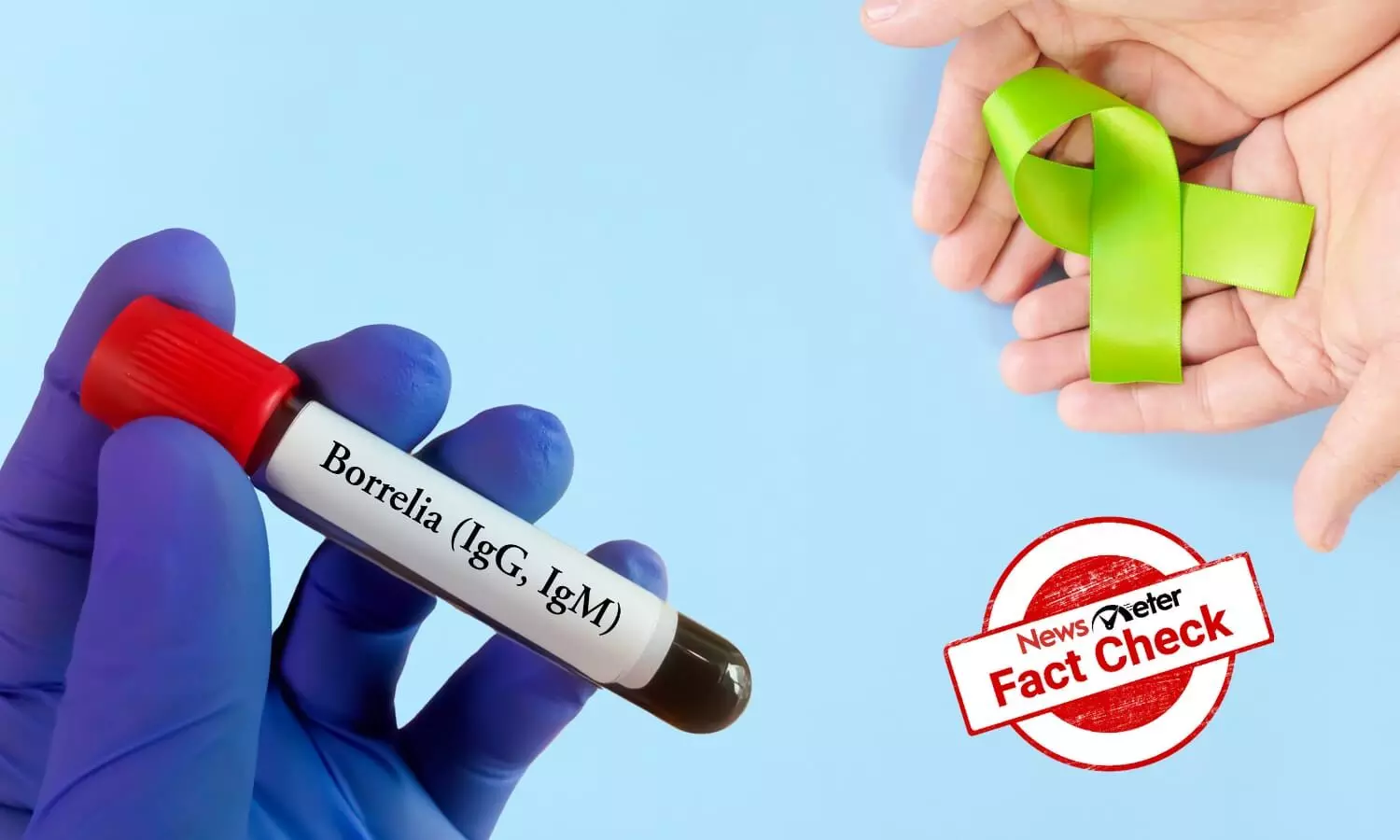Fact Check: Are Lyme disease and HIV/AIDS the same?
Here is what you need to know:
By Sunanda Naik
Hyderabad: A X (formerly Twitter) post has gone viral claiming that Lyme disease and HIV/AIDS are the same.
No such thing as Lyme disease. It was & is always HIV AIDS caused by the GP 120 injected!Treating people with antibiotic protocols destroys their gut microbiome, therefore destroys their health!#truth #news #health #lymedisease #HIV #AIDS #thursdaymorning #thursdayvibes… https://t.co/AqYrRzZmql pic.twitter.com/ekfMbihk4B
— Judy A. Mikovits PhD (@DrJudyAMikovits) August 17, 2023
According to the post, “No such thing as Lyme disease. It was & is always HIV AIDS caused by the GP 120 injected! Treating people with antibiotic protocols destroys their gut microbiome, therefore destroys their health! (sic)”
Lyme disease nowadays is as misunderstood and medically controversial as HIV was in the early 1980s.
Fact Check
NewsMeter found that the claim is false. Lyme disease and HIV/AIDS are not the same condition.
John Hopkins Medicine explains Lyme disease as an infection caused by the bacteria Borrelia burgdorferi. This spiral-shaped bacterium is most commonly spread by a tick bite. The disease takes its name from Lyme, Connecticut.
Whereas, Human Immunodeficiency Virus (HIV) is the virus that causes acquired immunodeficiency syndrome (AIDS). When a person becomes infected with HIV, the virus attacks and weakens the immune system. As the immune system weakens, the person is at risk of getting life-threatening infections and cancers, explains Penn Medicine.
Lyme disease symptoms
Lyme disease’s primary symptom is a red rash that can appear several days after infection, or not at all, may last up to several weeks, can be very small or grow very large (up to 12 inches across), and may resemble a ‘bulls-eye’. It can mimic skin problems such as hives, eczema, sunburn, poison ivy, and flea bites, can itch or feel hot, or may not be felt at all. It can disappear and return several weeks later.
Several days or weeks after a bite from an infected tick, you may have flu-like symptoms such as headache, stiff neck, aches and pains in muscles and joints, low-grade fever and chills, fatigue, poor appetite and swollen glands.
Weeks to months after the bite, the following symptoms may develop:
- Neurological symptoms, including inflammation of the nervous system (meningitis) and weakness and paralysis of the facial muscles (Bell palsy)
- Heart problems, including inflammation of the heart (myopericarditis) and problems with heart rate
- Eye problems, including inflammation (for example, red eye)
Months to a few years after a bite, the following symptoms may include:
- Inflammation of the joints (arthritis)
- Neurological symptoms including numbness in the extremities, tingling and pain, and difficulties with speech, memory, and concentration
Some people may develop post-Lyme disease syndrome (PLDS). A condition also known as chronic Lyme disease includes PLDS, but also other syndromes.
Symptoms of HIV/AIDS
An HIV infection (when a person is first infected) can be similar to the flu or other viral illnesses. They include fever and muscle pains, headache, sore throat, night sweats, mouth sores, including yeast infection (thrush), swollen lymph glands and diarrhea. Many people have no symptoms when they are first infected with HIV.
Moreover, an article on lymedisease.org, states that “Lyme is not AIDS, but Lyme can be as devastating on the body as AIDS is — up to the point of death.”
According to a study, Lyme disease is a controversial tick-borne illness that is estimated to be four times more common than AIDS in the United States.
Neither the cause nor the symptoms resemble Lyme disease and HIV/AIDS. We could not find any parameter to find any similarity to call both as same.
Hence, the claim stands false.